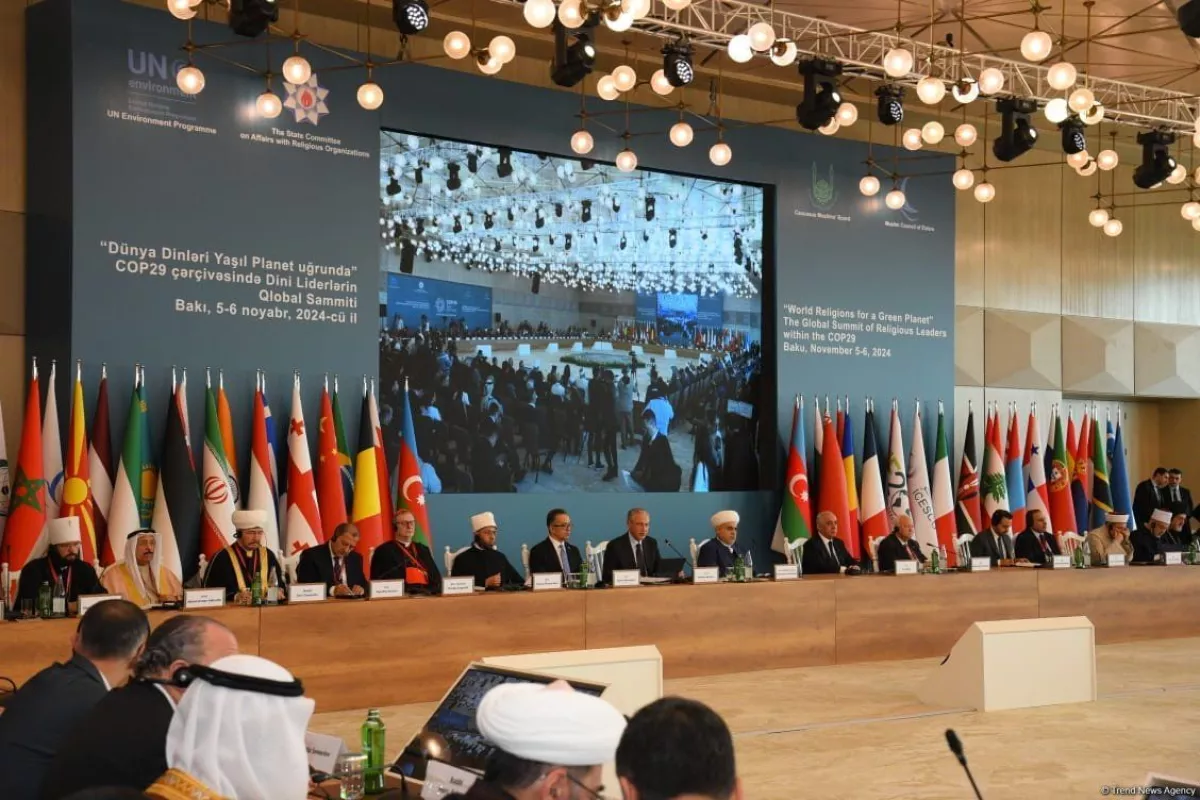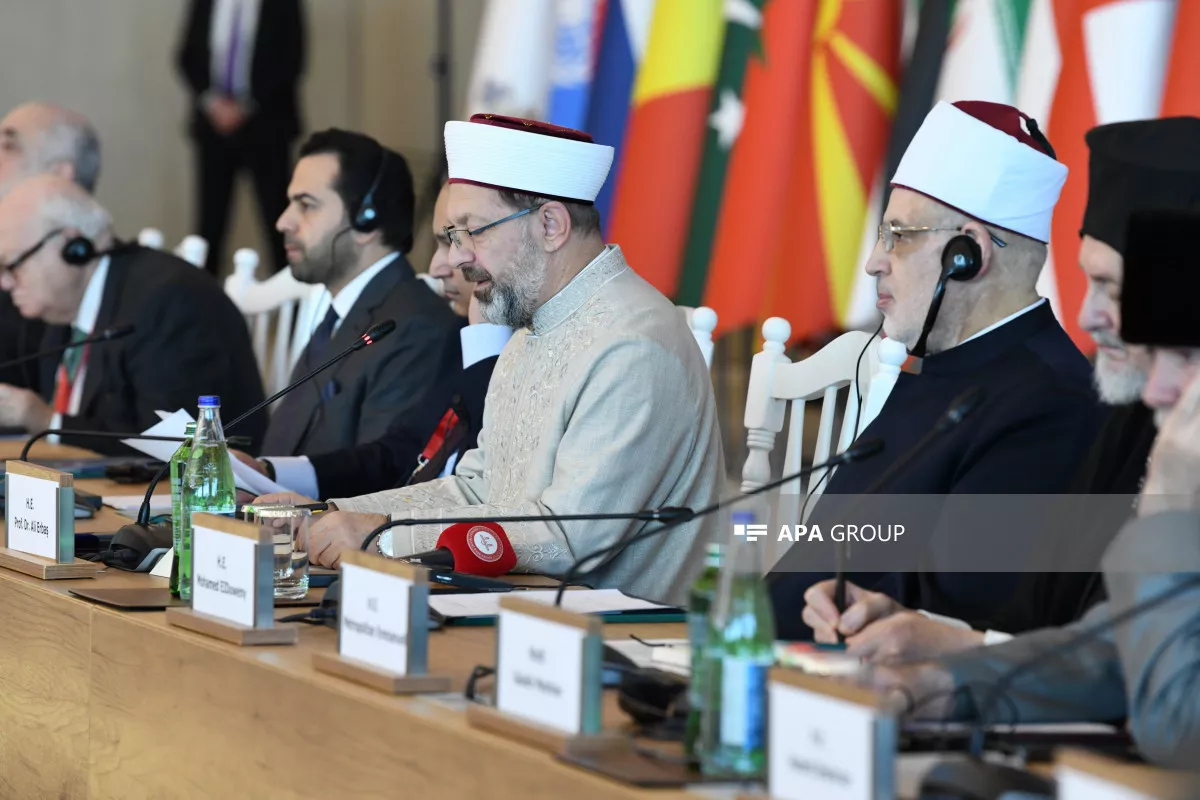Baku summit of religious leaders highlights Azerbaijan’s role in climate, environmental justice PHOTO
The message from the Global Baku Summit of Religious Leaders to the world will be crucial in addressing future threats, said Chairman of the State Committee for Work with Religious Organisations Ramin Mammadov at the Global Summit of Religious Leaders in Baku.
Mammadov suggested that a key part of this message could be an appeal to stakeholders in the international system, Caliber.Az reports per local media.
"States and international organisations must work more intensively to mitigate the impacts of global warming," he said.
The committee chairman also emphasised Azerbaijan’s contribution to combating global climate change by liberating Karabakh from occupation. He highlighted Azerbaijan's efforts in the region, now establishing a "green energy zone" on reclaimed territories.
"For 30 years, Azerbaijan was a victim of injustice. By liberating its lands, it has averted a catastrophe for a large ecocide-affected region. Today, 'smart' cities and villages are being built, and a green energy zone is being created," Mammadov explained.
Moreover, during the opening ceremony of the Global Baku Summit of Religious Leaders, held under the theme World Religions for a Green Planet as part of COP29 on November 5, Türkiye's Head of Religious Affairs, Ali Erbaş underscored the severity of global environmental issues. “Environmental harm caused by biological and chemical weapons has reached its peak. This is a serious warning sign. Historic landmarks and nature are being destroyed. We must act together,” he urged.
Erbaş warned of a worldview that detaches humans from their existential purpose and fosters dependence on the environment, stating, “Such a mindset is driving the world towards disaster. Global environmental problems endanger not only humanity but the entire ecological system. Today’s concepts of power and dominance threaten the natural balance. We need to address this openly.”
Erbaş went on to highlight the significant role developed nations play in the current environmental crisis.
“Ecological catastrophes, global warming, food security, the depletion of natural resources, and severe pollution of air, water, and soil are issues largely ignored by developed countries. We must speak openly about this.”
Meanwhile, according to Chairman of the Caucasus Muslims Office, Sheikhulislam Allahshukur Pashazade, the model of a “green” economy offers humanity the opportunity for more harmonious development, calling for an update to the concept of environmental ethics. Pashazade emphasized that humanity’s moral and ethical perspectives must guide our approach to nature, which he described as a divine gift.
Pashazade highlighted that humanitarian crises today stem from ecological and military misconduct, the destruction of ecosystems, and the degradation of fertile lands and water resources. He expressed concern over modern trends that distort long-established moral and ethical standards and threaten cultural and religious values.
He noted that adhering to cultural and ethical principles across political, economic, and international spheres is vital to overcoming these challenges. Citing the UN’s Sustainable Development Programme, he underscored the importance of a sustainable green economy that ensures economic efficiency, social justice, and environmental balance, with renewable energy accessible to all.
Notably, the Global Summit of Religious Leaders is being held at the "Gulustan" Palace in Baku, Azerbaijan, on November 5-6. Attended by around 30 leaders from various world religions and 30 international organisations across 55 countries, the event brings together religious officials, including representatives from the Vatican and Al-Azhar, alongside prominent global religious and public figures.
This summit marks Azerbaijan’s continued commitment to fostering interfaith dialogue on critical global issues. Previously, Azerbaijan hosted the First and Second World Summits of Religious Leaders, and for this summit, aligned with COP 29, the focus is on addressing climate change through a moral and ethical lens. The theme, "World Religions for a Green Planet," underscores the need for united religious action on environmental sustainability for the future of the planet.
Organised under the patronage of President Ilham Aliyev, the event is supported by Azerbaijan’s Ministry of Ecology and Natural Resources, the State Committee for Work with Religious Organizations, the Caucasian Muslims Office, the International Council of Muslim Elders, and the UN Environment Programme. Additionally, foreign attendees are scheduled to visit territories in Azerbaijan recently liberated from Armenian occupation, providing further insight into the region's development and future plans.
By Aghakazim Guliyev










